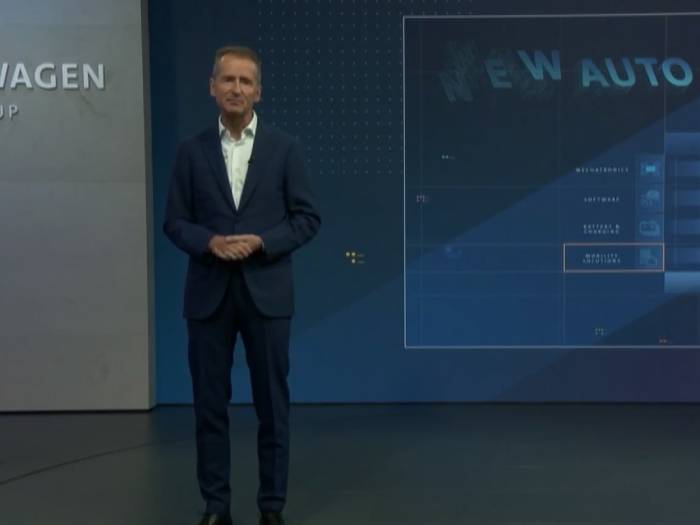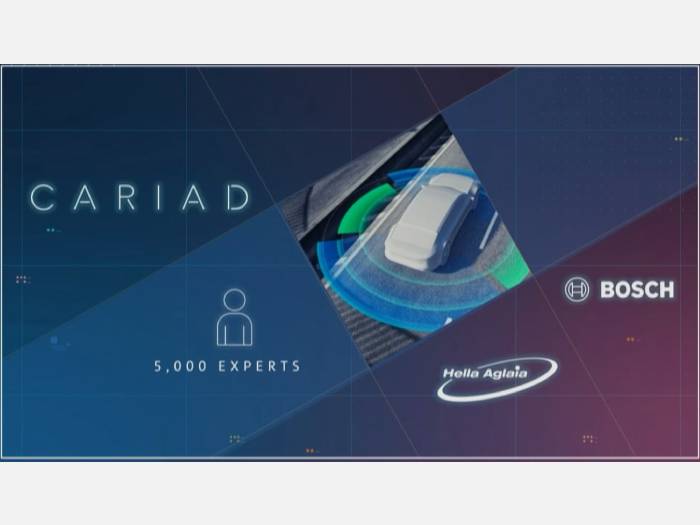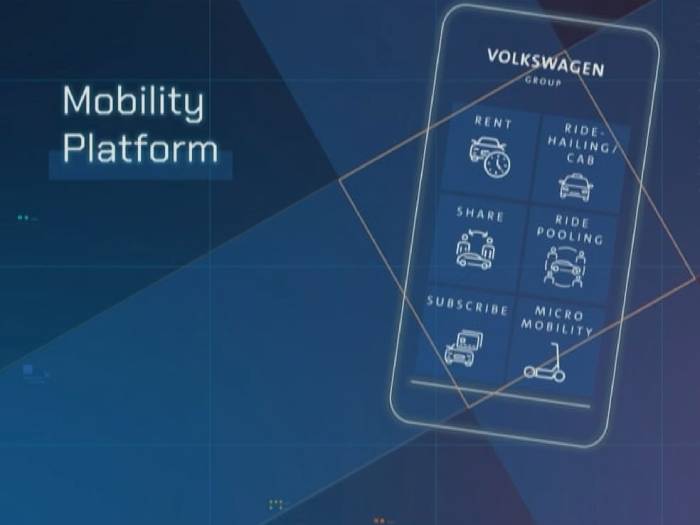NEW AUTO: towards autonomous, zero-emission and software-driven mobility
The Volkswagen Group consistently pursues its transformation into a provider of sustainable and software-driven mobility. The business model will be based on the development and implementation of technology platforms in order to reduce complexity, create synergies and achieve significant economies of scale. The pillars of the NEW AUTO strategy? E-mobility, software and mobility solutions that also focus on autonomous driving.
NEW AUTO, the mobility of tomorrow

A clear vision, a precise target: shaping mobility by developing sustainable, connected, safe and tailor-made solutions. This is the mission of the Volkswagen Group, which is going through a transformation process that will lead it to become a provider of sustainable and software-driven mobility. The roadmap is set by the NEW AUTO strategy, which defines ways and fields of action and points the way for business evolution: the platform model.
Technology platforms
To simplify, the Volkswagen Group's approach focuses on the development and the subsequent implementation of four advanced technology platforms, one for each business area: mechatronics (vehicle architecture), software, batteries & charging, mobility solutions. The objectives? Reduce complexity, create synergies and achieve significant economies of scale. In other words, make the mobility of tomorrow - which will be zero-emission, fully connected and exploit the potential of autonomous driving - accessible to everyone.
The importance of software

Digitalization and software will play a key role in the mobility of tomorrow, which is why the activities of CARIAD, the software company of the Volkswagen Group, are of strategic importance.
Over-the-air updates and new functions have been available since last autumn. The next innovations will concern the Volkswagen Travel Assist driver assistance system and infotainment.
In parallel, CARIAD is working on the unified software platform 2.0 for all Group brands, which is scheduled to be launched in 2025. The minimum viable product (MVP) of the platform, i.e. a first version including the main functions, has been successfully developed. Never before had a basic software architecture been tested and completed four years before production started - a completely new approach to software-centric vehicle development.
E-mobility: dedicated platforms...
The platform model applied to vehicle architecture is well-established within the Volkswagen Group. The most recent example is the MEB (from the German Modulare E-Antriebs-Baukasten), a modular structure developed specifically for all-electric models and used not only by various Group brands, but also by other manufacturers: just a few days ago, for example, Ford announced the production of a second model based on the MEB. This means that, in addition to the Volkswagen Group's volumes, another 1.2 million cars will be built based on this architecture, with benefits for customers in terms of costs as well.
The evolution of the MEB will be the SSP (acronym for Scalable Systems Platform), which from 2026 will be the basic platform for all of the full electric models of all Volkswagen Group brands and will integrate autonomous driving functions.
...and development of the charging infrastructure
A further aspect to be worked on in terms of e-mobility is the charging infrastructure, a fundamental driver for the spread of zero-emission mobility. In this context, the Volkswagen Group's commitment takes concrete form through joint ventures set up specifically for this purpose - such as the one with Enel for Italy - or specific partnerships. The focus is on high-power charging: overall, 45,000 HPC (High Power Charging) charging points are to be installed worldwide by 2025. About 10,000 are already in operation, many more will be activated this year.
Ride pooling with autonomous driving

Electric and, in the not too distant future, driverless vehicles: the Volkswagen Group's mobility offering will be expanded to include various services. An ad hoc platform is being developed that will enable a range of services such as ride pooling, ride hailing, car sharing and rental services to be offered via a single app - the launch of a public bid for Europcar last year is part of this.
The services will also include self-driving shuttles and, in this context, the main player will be ID. Buzz AD: road tests of the vehicle's autonomous driving functions, equipped with ARGO AI software, are already underway in Munich; further trials are planned for 2023 in the United States. The aim is to launch a self-driving ride pooling service in Hamburg in 2025.
VGI | Responsible OU: VP | Creation date: article date | Class 9.1
